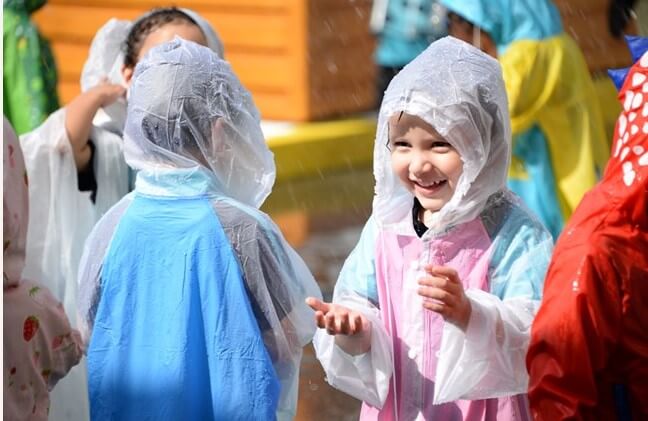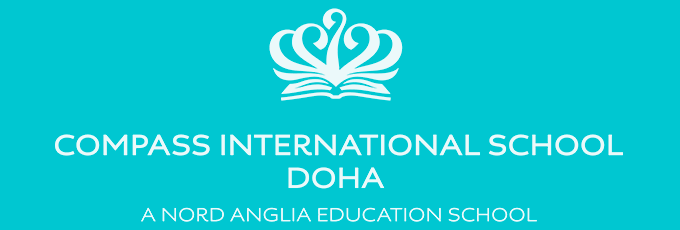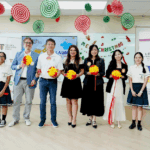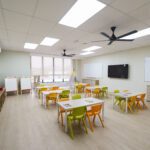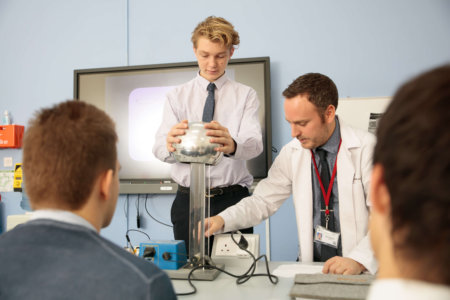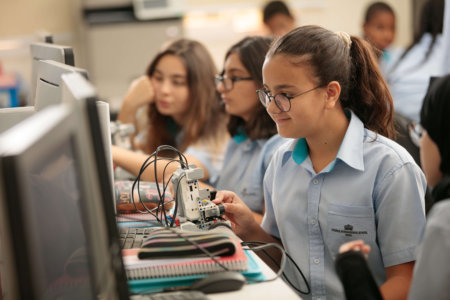When we think about the early years of a child’s life –– from infancy to toddlerhood –– we often think about physical developmental milestones. Their first steps, hand-to-mouth coordination, or the biggest objects they can carry without tumbling backwards. Equally essential at that age, however, is their mental development, as the building blocks of learning are formed in those years.
One of the biggest and helpful investments parents can make is for the most critical period of a child’s life –– birth to the age of five. At Compass International School Doha, a leading international school in Qatar, the quest to prepare children for school and lifelong success begins as early as an infant’s first fist clench.
Compass is home to four campuses, three of which — Gharaffa, Rayyan, and the Themaid campuses — are where the littlest of learners are nurtured to take their next academic step with confidence.
Their Early Years programme brings together two international programmes to lay a strong foundation for students’ future learning: the Early Years Foundation Stage (EYFS) curriculum and the topics and themes used in the International Primary Curriculum (IPC).
Under the EYFS curriculum, students explore, investigate, create, practice and consolidate their way through holistic, formative education. They do so in indoor and outdoor classrooms, allowing students to move about freely and stay engaged under the watchful eyes of highly qualified Early Years teachers.
“The EYFS is a set of standards that looks after the education, wellbeing, and the safety of children from 0 to 5 years of age,” says Sarah Reid, Deputy Head of the Gharafa Campus. “What we aim to do here in Compass is make our children learn in a safe environment, develop their wellbeing, and to get them ready academically for their primary education in Year 1.”
In the Early Years, Compass focuses on seven areas of learning. The first three — Communication and Language, Physical Development, and Personal, Social, and Emotional Development — begin in the nursery and Early Years 1.
In Early Years 2, children are introduced to Literacy, Mathematics, Understanding of the World, and Expressive Arts and Design. This helps them to reach their full potential when entering a Year 1 classroom.
Learning at Compass is also never dull. The School peppers playing and talking throughout their lessons to ensure students enjoy a learning environment that is both fun and effective. This is done by combining units from the IPC, which provide Compass staff with a framework to design classroom activities for children to achieve their learning outcomes and have fun.
An Entry Point activity sets the scene, and an Exit Point allows students to reflect on their learning. As part of the Sand and Water IPC Exit Point, for instance, Early Year students get to don their wellington boots, coats, and umbrellas before enjoying a splashing good time in puddles for the day’s event. Other exciting themes that students get to immerse themselves in include Bears, People Who Help Us, Family and Friends, Animals, Treasure, Dinosaurs, among others.
A school for everyone
Students of all backgrounds thrive at Compass. Attesting to this are the 70 nationalities represented at this dynamic school. English as a Second Language is also offered for students who need it.
“We have an EAL programme specifically for our Early Years 2 children; we also engage through stories, play, library time, among others. There are many opportunities for the children to enhance their English skills here at Compass,” Reid shares.
“What we do is look after the unique child that comes into our classroom, we tailor their education, personalise it and make sure that we really know every child’s next steps.”
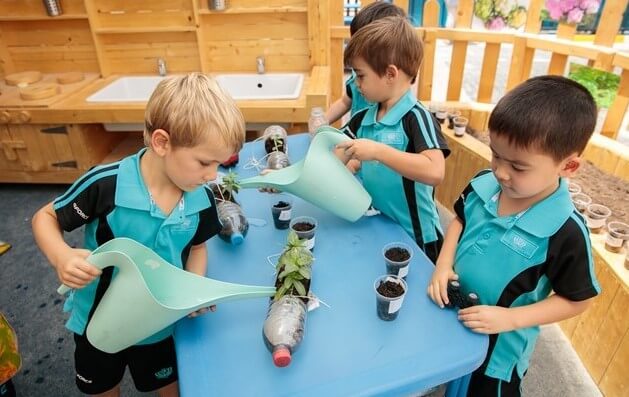
Compass International School believes that children learn best when there is a fruitful partnership between their lives at home and school. Source: Compass International School Doha
Compass believes that children learn best when there is a fruitful partnership between their lives at home and at school. The school offers a home online assessment system called Tapestry, which parents use to witness learning experiences through pictures and videos.
Teachers share notes and observations with parents, who, in return, often share home videos with teachers so they can better understand the needs and quirks of every individual learner.
While Tapestry shares moments worth keeping, Class Dojo is used for daily updates. The platform connects teachers with students and parents for a unique insight into classroom learning. Upon enthusiastically greeting every student at the door, teachers use the platform to keep them in the loop on the days’ itinerary.
Compass has a “print-rich environment”, notes Reid. “We expose the children to words in their environment, and we give them opportunities to write. You’ll see this everywhere –– in our role play and various areas of the classroom. ”
Ultimately, Compass provides children with a safe and progressive environment in which they develop the necessary skills to become lifelong learners. To learn more about the school, click here.

